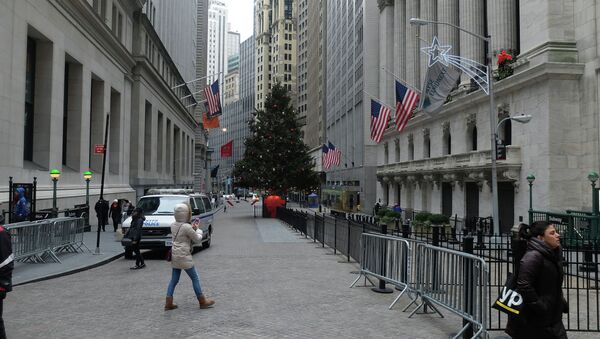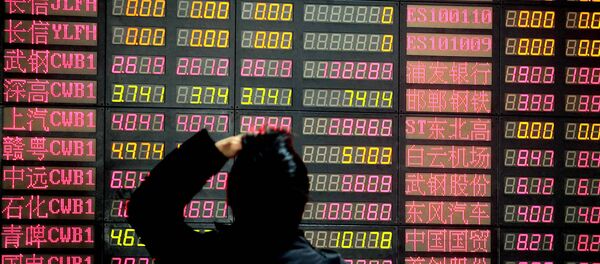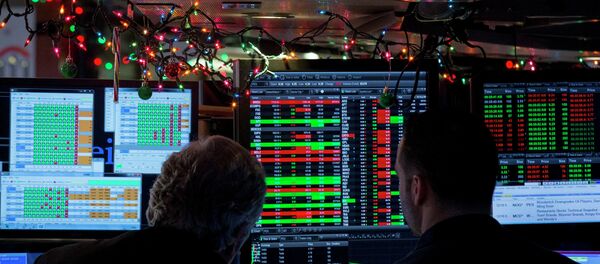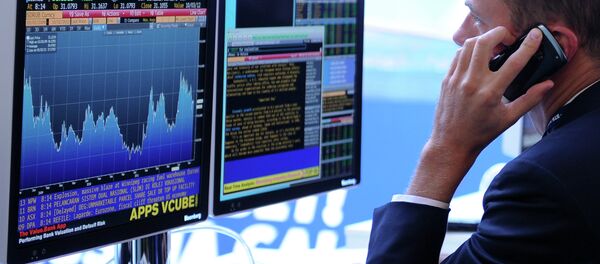The real economy in most of advanced nations is mostly faltering, and the rest of world is bound to follow the trends set in Washington, Brussels and Tokyo.
The data released on Friday showed that unemployment in the US declined to its six-year low, at 5.5% in February, a figure the Fed considers to be ‘full employment’. That said, there is no formal reason for the Fed to continue its policy of ultra-accessible credit liquidity anymore, sparking a yet another wave of speculation among equity traders and investors that monetary policy might be tightened sooner than June. Now, while more expensive credit is a good thing for the US economy in the long-term, at this point investors fear that a higher Fed rate might seriously hurt some of the most profitable assets.
On Friday, the S&P 500 declined the most since 5 January, losing 1.4%. This past week’s accumulated losses in the index are thus 1.6%. The Dow fell 1.5%, the worst performance in five weeks. The Nasdaq shed only 1.1%, due to gains in the tech sector. Apple Inc added 0.2% as it will soon be added to the Dow Jones Index instead of AT&T. The latter’s equities thus slumped 15%.
"I think they (the Fed) are feeling some pressure to show that they really are data driven. The economy has been getting better, and what I think they're trying to do is overstay the party to make sure the economy really is better," Kim Forrest of the Pittsburgh-based Fort Pitt Capital Group said.
In Europe, ECB President Mario Draghi recently announced the full-scale monetary easing (a bond-buying programme worth some 1.1 trln euros) will start next Monday. European shares extended their record gains as a result, supported also by a strong performance of heavy industry. The European Union decided to impose a prohibitive import tariff of 25% and 12% on stainless steel originating from mainland China and Taipei, respectively. Consequently, Finland’s metals producer Outokumpu surged 18%, Spanish Acerinox soared 6% and Luxembourgian Aperam advanced 9.9%.
The pan-European FTSEurofirst 300 Index closed 0.1% up as a result, its seven-year high was hit during the trading session, but did not hold. The week’s accumulated gains for the index are 0.5%, the fifth consecutive week of gains.
The rally in European stocks is most likely set to continue as the ECB’s monetary easing and the rebounding real economy are a indicator of a strong influx of investment money, generating a lot of profit for market participants.
In China, concerns over growth depressed investors. In Beijing, top policymakers, including the premier Li Keqiang and the finance minister Lou Jiwei, admitted the nation is facing significant economic challenges. Consequently, the Shanghai Composite Index slid 0.22%. In Hong Kong, now more dependent on political winds blowing fron Beijing due to the Stock Connect scheme, shares also retreated. Mainland markets weighed on the dynamics in the Hang Seng Index, with the latter having lost 2.7% this past week, and 0.1% on Friday only. Telecommunications, financials and gambling sectors have been the worst performers in Hang Seng.
Global commodities prices are on the major decline. The Bloomberg Commodity Index retreated 0.97% Friday, and the total year-on-year losses in the index have totaled 25.96%. In energy, America’s WTI crude fell below $50/bbl once again, selling at $49.61/bbl now, while Brent crude is at $59.73/bbl. Metals are retreating as well, with gold selling at 1,167.29/oz. a decline of 2.60% Friday.





